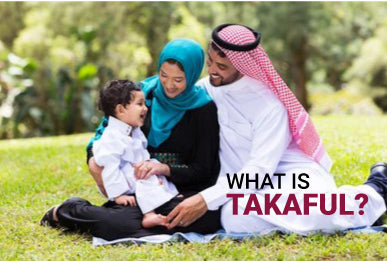Most amin of informing gets dizzy while explaining meaning of family takaful and regular insurance. In the course of the current article, it is our intention to unfold the distinctions between the two aforementioned choices. This should make it easy for you to choose the one that’ll be most appropriate for you.
Let’s discuss about all these types with respect to how it operates, the benefits associated with using that type, drawbacks of using that type etc. Before we finish, hopefully you are better able to understand the distinctions and make the decision as to which one matches your needs better.
While choosing between the family takaful and the regular life insurance you need to know that they basically give your family some protection if anything happens to you. But what are the essential features that distinguish one type of grants from another one?
What is conventional life insurance?
In traditional life insurance the process is relatively straightforward: you enter into an understanding with an insurance company. You make fixed contributions, normally referred to as premiums, and in exchange, the company will provide a lump-sum to your family or other contributors in the event you die.
This assists in making sure that your loved ones have been well provided for in the event that you pass on. There are three types of conventional life insurance depending on the way they are underwritten. Term insurance provides you with a fixed term of say 10, 20, or 30 years and then expires.
In the event of your death in this period, your nominated beneficiaries are entitled to the payout. Whole life insurance remains active until the time of the policyholder’s death, and also accumulates cash value over time.
This can be said to be one of the insurance types that have been categorized based on risk and profit. It buys and holds assets such as investments by using the money received from the premiums so that it can make a profit.
This does not however go well with the tenets of their religion hence they seek other solution like Islamic life assurance. Takaful, otherwise referred to as Islamic life insurance, is a type of contract based on mutual help in which all sharers bear the risks; thus, it is right for those with certain ethical and religious beliefs imposed on them.
In other words, ordinary life insurance is a tested and reliable means of securing the financial stability of the-family but to protect which type of insurance is suitable for you to consider its principles and parameters.
Differences between family takaful & conventional life insurance
About the two, while family takaful is a type of insurance and better known as Islamic life insurance, conventional life insurance is an insurance policy whereby customers pay an agreed amount of money either monthly or yearly for protection and financial security of their loved ones in the event of their demise. Therefore, the following distinctions would be crucial to analyze so that the best decision could be taken. Brief research can also assist you in determining the best strategy to adopt in order to arrive at the right decision.
Principles and Structure:
The principles and structure of both plans are basic and in line with what has been discussed in the literature review for family takaful and conventional life insurance. Takaful in relation to the family involves pooling of resources where each party contributes in towards the help of other.
This is after applying the code of Shariah in the conduct of the operations for Islamic life insurance. Traditional life insurance is unlike this; you submit your premiums to an insurance company and in return the company invests from the premiums and makes profits from both the investments and the premiums while paying out claims from its own pocket.
By understanding these differences, then it becomes easier to Distinguish and select the most appropriate option of your preference.
Investment Approach
In family takaful, your money is invested in a way that follows ethical guidelines, like avoiding industries like alcohol and gambling.
This is important for those interested in Islamic life insurance. On the other hand, conventional life insurance aims to make profits through different investments without these specific rules.
Knowing this helps you choose the right option based on what matters to you. If you're looking for Islamic life insurance, family takaful's investment approach might be more in line with your values.
Profit and Surplus:
Extra money is dissimilar provided in family takaful and conventional life insurance. The balance of funds at the end of the year or after payment of claims other than returning the premium to the participants is reinvested either to be divided among the participants or used to offset future costs.
This stands in contradiction with the Islamic life insurance principles. In conventional life insurance, the excess of premium also go the share of the owners of the insurance company. It makes it easier for you to go for the right option whenever there’s a differentiation between the two.
In case you support the concept of sharing profits and adhesion to ethical conduct, the traditional model of family takaful can be considered as more suitable.
Risk and Responsibility:
But in the case of family takaful and the conventional life insurance there is a distinction of how risk and responsibility are managed. As for family takaful, the risk of spending is borne in a collective mode where members assist each other financially.
This is in line with the Islamic principles for life insurance. If the amount of money within the fund reduces below a specific level, then participants may be required to add their money into the fund to supplement that which had been spent.
Adult life insurance on the other hand is normal life policy in which the insurance industry bears the risk and makes payments. It is possible to know which option is appropriate from the other by taking into consideration the differences that I enumerate above. If you prefer to have the load-bearing shared, then family takaful can be more appropriate in your case.
Ethical and Religious Considerations
Like in any insurance product, there are some ethical and religious issues that one has to consider in selecting between a takaful product and conventional life insurance.
Takaful for family conforms to the principles of Islamic insurance, even if various aspects of this insurance are aimed at ensuring adherence to Shariah law.
This means NO investments in products that include alcohol and other related products such as gambling products. You now see that conventional life insurance does not have these rules and is more oriented towards making a profit.
Understanding such differences will help you select the right course of action regarding your value/belief system. However, if adherence to ethical as well as religious standards is valued by you, Family Takaful will prove to be a better form of insurance.

